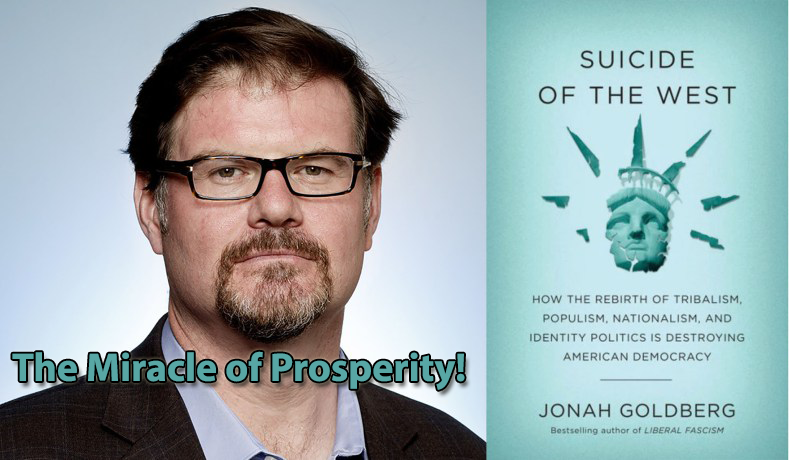Kerby Anderson
Jonah Goldberg talks about “The Miracle” in his book, The Suicide of the West. The major focus of his book is on tribalism and populism, but he begins with a description and an explanation of the remarkable change in western societies in the last few centuries.
“The Miracle is about more than economics, but economics is the best way to tell the story of humanity’s quantum leap out of its natural environment of poverty.” People used to live on the equivalent of a dollar or more a day. By the 18thcentury, human prosperity exploded in Europe and North America. And now so many people in so many countries have been lifted out of poverty.
A major reason for this dramatic change had to do with a change in the way human beings thought about the world and their place in it. Sure there was trade, science, and technology. But those things existed before The Miracle. He argues that ideas brought about this change.
What were those ideas? Here are three: that the individual is sovereign, that our rights come from God and not government, and that the fruits of our labor belong to us. These are Christian ideas, but Jonah Goldberg doesn’t give credit to Christianity. In fact, he begins his book with this statement: “There is no God in this book.” Instead, he assumes humans are merely an evolutionary product that eventually discovered the ideas that ushered in The Miracle.
He does give credit to John Locke. That would be the man who referred to the Bible over a thousand times in his first treatise on government and invoked the Bible more than three hundred times in his second treatise.
Jonah Goldberg rightly reminds us that we are the beneficiaries of a change in thinking that affected our political institutions and economic systems that brought us both liberty and prosperity. But I also think Christianity deserves some credit for The Miracle.
 Listen Online
Listen Online Watch Online
Watch Online Find a Station in Your Area
Find a Station in Your Area









 Listen Now
Listen Now Watch Online
Watch Online
